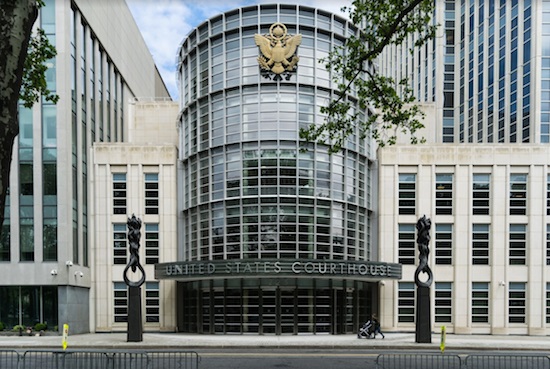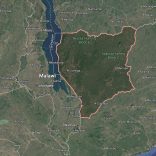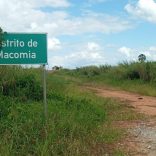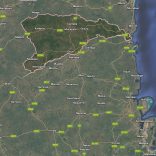Mozambique: 17 Malawians arrested over illegal stay, suspected illegal logging and gold mining
Privinvest officials blame delays and conflicts for stalled projects in Mozambique

FILE: U.S. District Court, Eastern District of New York (Brooklyn).[in file CoM]
Two Privinvest officials, one responsible for the Proindicus project and one for MAM, said Friday in court that the projects in Mozambique had stalled due to delays on the part of Mozambique, including lack of security and conflict in the country.
Peter Kuhn, Privinvest’s director of special programs, and Johan Valentijn, the company’s maritime engineer, were called in New York as witnesses for the defence in the trial of Privinvest negotiator Jean Boustani on charges of involvement in bribery, fraud and money laundering in the Mozambique ‘hidden debts’ case.
The two witnesses spoke of the obstacles Privinvest encountered in providing materials and services to Mozambican state-owned companies Proindicus and Mozambique Assets Management (MAM) from 2013 until the conflict between the country’s two parties, Renamo and Frelimo, in 2015 and 2016, which forced the suspension of activities.
Peter Kuhn said the project was developed over three years and two months, with the implementation of a coastal protection system, delivery of radars and training of Mozambican workers, but the “lack of security” and “existence of armed conflict” in the country became a threat to the business.
According to Peter Kuhn, Privinvest has supplied materials for 18 coastal surveillance stations. The witness stated that Privinvest “supplied the vessels on time” but “Mozambique failed” to set up and make the surveillance stations operational.
Among the services that Proindicus were preparing were the delineation of a protection concept, the installation of safety equipment such as radars and electro-optical sensors, the provision of manual or remote systems, and “a large availability of resources”.
Peter Kuhn recalled that it was in 2016 that he had several warnings about insecurity in Mozambique and the need to abandon some coastal locations in favour of military exercises.
In an email message, Kuhn then sent an alert to Proindicus managers, António do Rosario and José Manuel Gopo: “We are extremely concerned about the current situation in Mozambique, given the recent armed attacks on vehicles, reported fatalities and travel advice.”
Privinvest’s technical manager said the workers “did not feel safe” and did not want to go to work in those areas “without guarantees of protection from the Mozambican government”, which led to the suspension of activities.
According to Johan Valentijn, shipbuilding architect and marine engineer, Privinvest’s goals were to “make Mozambique more sustainable” and “provide the country with options to make more money.”
The MAM project was aimed at building a shipyard in Mozambique, which Valentijn said was achieved, with the defence team showing photographs of the built or rehabilitated infrastructure.
One of the difficulties for MAM was the slowness and delays on the part of local authorities in giving access to areas that were to be rehabilitated or where construction would take place, Valentijn said, explaining that the company’s maintenance base was in Pemba.
The contract between MAM and Privinvest was for two years, the witness said, including training and “transfer of knowledge and technology”.
“MAM was expected to provide the site for training, but it took a long time to have access to a site to build a shipyard,” Valentijn complained, saying that there were people who had been waiting to start work for 14 months.
According to the maritime engineer, “many kidnappings and murders were happening”, and MAM had worked up a complete emergency evacuation plan, although it was never used.
The defence team also presented an email sent by Privinvest negotiator Jean Boustani in August 2015 to several MAM-related people: “Indeed, delays in the MAM project due to domestic policy (…) are costing Privinvest a fortune. This is completely out of Privinvest’s hands. Let’s see if politics in Mozambique will be fixed for the sake of the Mozambican economy!!”
According to US prosecutors, MAM, Proindicus and Ematum were allegedly created solely for the illicit enrichment of people and took out international loans backed by the Mozambican Ministry of Finance.
When the three companies defaulted on payments, ‘hidden debts’ worth $ 2.2 billion (two billion euros) came to light.












Leave a Reply
Be the First to Comment!
You must be logged in to post a comment.
You must be logged in to post a comment.